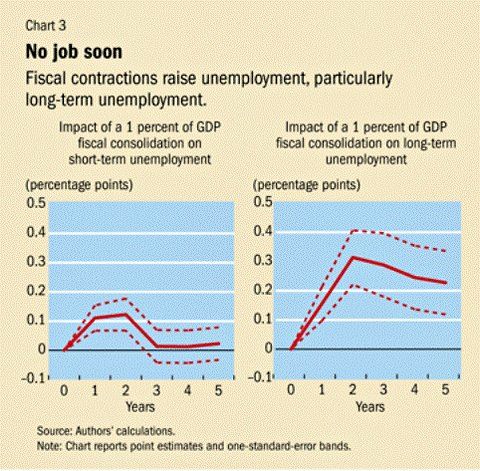“Punting the Pundits” is an Open Thread. It is a selection of editorials and opinions from around the news medium and the internet blogs. The intent is to provide a forum for your reactions and opinions, not just to the opinions presented, but to what ever you find important.
Thanks to ek hornbeck, click on the link and you can access all the past “Punting the Pundits”.
Paul Krugman: A Constant Flow of Bad News for Europe and the US
In the United States, we have zero job growth, with unemployment still at nosebleed levels, according to a recent government report. Meanwhile, the interest rate on 10-year bonds is down to 2.04 percent, and it’s negative on inflation-protected securities.
Aren’t you glad we pivoted from jobs to deficits a year and a half ago?
Meanwhile, on the other side of the pond, “Is Austerity Killing Europe’s Recovery?” asks The Washington Post.
Howard Schneider, a staff writer who covers international economics, wrote on Sept. 1: “After more than a year of aggressive budget cutting by European governments, an economic slowdown on the continent is confronting policymakers from Madrid to Frankfurt with an uncomfortable question: Have they been addressing the wrong problem?”
Yah think?
Robert Resich: The Republican Weapon of Mass Cynicism
According to the latest ABC New/Washington Post poll, 77 percent of Americans say they “feel things have gotten pretty seriously off on the wrong track” in this country. That’s the highest percentage since January, 2009.
No surprise. The economy is almost as rotten now as it was two years ago. And, yes, this poses a huge risk to President Obama’s reelection, as it does to congressional Democrats.
But the truly remarkable thing is how little faith Americans have in government to set things right. This cynicism poses an even bigger challenge to Obama and the Democrats – and perhaps to all of us.
It’s getting too late to give President Barack Obama a pass on the economy. Sure, he inherited an enormous mess from George W., who whistled “Dixie” while the banking system imploded. But it’s time for Democrats to admit that their guy bears considerable responsibility for not turning things around.
He blindly followed President Bush’s would-be remedy of throwing money at the banks and getting nothing in return for beleaguered homeowners. Sadly, Obama has proved to be nothing more than a Bill Clinton clone triangulating with the Wall Street lobbyists at the expense of ordinary folks.
Dean Baker: Lehman Three Years Later: What We Haven’t Learned
As we prepare to celebrate the third anniversary of the Lehman bankruptcy and the ensuing financial crisis, it’s a good time to assess the situation and ask what has changed. The answer is not encouraging.
Very little has changed about either the realities on the ground or the intellectual debate on economic issues in the last three years. The too-big-to-fail banks are bigger than ever as a result of crisis-induced mergers. Financial industry profits now exceed their pre-crisis share of corporate profits, and executive pay and bonuses are again at their bubble peaks.
None of the executives who pushed and packaged fraudulent mortgages have gone to jail. Even those who have faced civil actions, like Countrywide’s Angelo Mozilo, have almost certainly still come ahead after making large payments to settle suits.
Ann Wright: Instead of Attacking WikiLeaks, Fix What It Exposed
Former Defense Secretary Robert Gates was right when he suggested that the WikiLeaks revelations were “embarrassing” and “awkward.” But his assessment – and that of so many other government officials – stems from the magnitude of what he left unsaid.
These revelations are not merely embarrassing. They also contain evidence of government actions and policies that are an abuse of power and that violate international human-rights standards to which we as Americans are committed.
For instance, through the information coming from WikiLeaks documents, the public is now aware of “FRAGO 242” – an official order not to report evidence of prisoner abuse by Iraqi security forces. This policy violates the United Nations Convention Against Torture, which was ratified by Congress in 1994. The treaty explicitly requires allegations of cruel or inhuman treatment to be investigated and brought to a halt.



Recent Comments